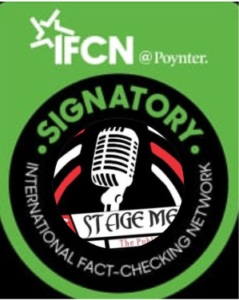
The plastic alcoholic beverage that was banned in 2009 by President Ellen Johnson-Sirleaf has resurfaced in three counties in Liberia
Grand Cape Mount, Margibi, and Montserrado counties have seen a wave of plastic alcoholic beverages on the markets.
The ban in 2009 was done when President Johnson Sirleaf ordered the Commerce Ministry to ensure that under-aged youths do not consume the drink.
The drink, referred to locally as “drips,” was then produced by a local distillery, NICOM distilleries.
It was “drips” because it was easy to carry as kids, students, women, and men consumed it uncontrollably.
But the new 50 ml sachet beverage produced and packaged in Sierra Leone is 30 percent alcohol.
It is named “Senator Brand Bitter,” made up of Water, alcohol, food flavor, plant extracts, roots, and herbs.
On the sachet, the brand herbal is prepared from well-selected plants.
The drink promotes appetite in men, stimulates men for performance, and is the most reliable restorative by nature.
Alcohol is a toxic and psychoactive substance with dependence-producing properties.
According to the World Health Organization, Alcohol consumption contributes to 3 million deaths each year globally and to millions of people’s disabilities and poor health. Overall, the harmful use of alcohol is responsible for 5.1% of the global disease burden.
Harmful use of alcohol is accountable for 7.1% and 2.2% of the global disease burden for males and females, respectively.
According to the World Health Organization, it is the leading risk factor for premature mortality and disability among those aged 15 to 49 years, accounting for 10 percent of all deaths in this age group.

President George Weah, in January 2019, signed a proclamation prohibiting the access of children under 18 years to alcohol, drugs, and cigarettes.
The children act of 2011 asserts that a child is in a situation of particular vulnerability if they become or are exposed to alcohol or any intoxicating narcotic drugs.
Also, the Liberia penal law section 16.6 states, “Parent or any person 18 years and above, who sells, sends a child to purchase or serves alcoholic beverages, cigarettes or any narcotic or intoxicating drugs, is guilty of a misdemeanor of the first degree.”
When contacted, the Ministry of Commerce Public Relations officer, Jacob Parley, said, “The ministry will respond appropriately.”
The WHO organization 2020 report recorded that 88 percent of people aged 15 years and above consume spirits, 9 percent drink beer and 2 percent drink wine, and 1 percent drink others.
There is no written national policy (adopted/revised) or national action plan, but there is an Excise tax on beer, wine, and spirits in Liberia
Spirits are the highest Alcohol by volume(ABV) products of the yeast-based fermentation of a liquid brewed to have fermentable sugars.

Though there is National legal minimum age for off- and on-premise sales of alcoholic beverages (there are no restrictions for on-/off-premise sales of alcoholic drinks, they can be sold at any hour, day, and event.
The WHO report also says there is no National government support for community action and neither national monitoring system nor legally required health warning labels on alcohol advertisements or containers.
Caroline Armah, the Executive Director of Women Solidarity Incorporated, says the reappearing of the sachet beverage on the market will give the country another menace to fight, aside from the drugs and marijuana.
“We will experience low school output and turnout. Parents will become more frustrated, the police, juvenile court, rehabilitation centers and CSOs will have increased caseloads which could have negative effects without resources,” according to her.







